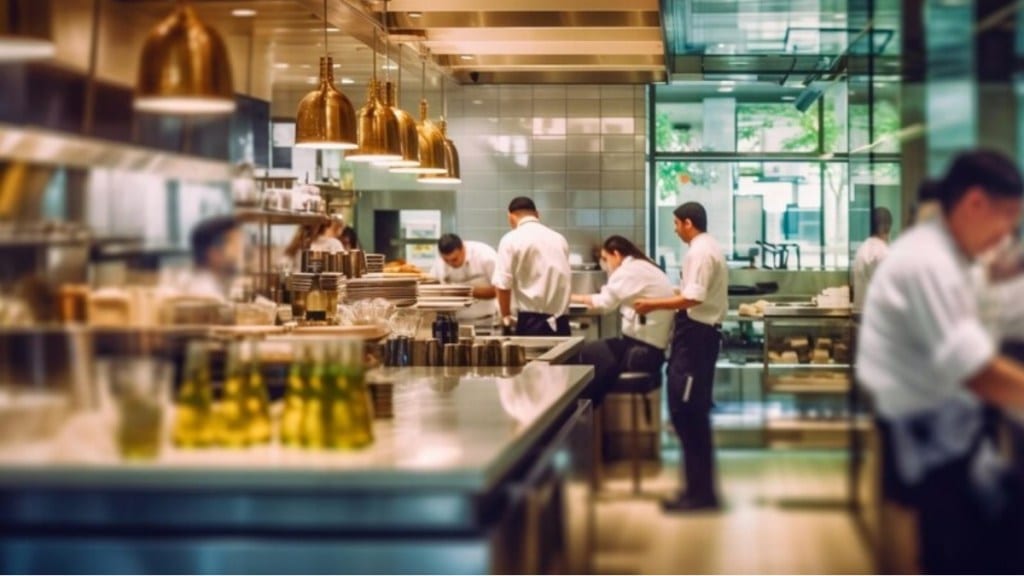By Tushar Chahera
In the ever-evolving landscape of the modern business world, industries that were once distinct are now fusing together to form a vibrant and promising confluence. The advent of the twenty-first century has brought seismic shifts, transforming industries across the world to prosper and strive in a competitive period. Among several uncertainties, the pandemic’s arrival took a toll on every industry, leading them to shut their doors for good. To stay ahead of the curve, sectors across domains with cutting-edge technologies have embraced the idea of intersection for innovation, improved efficiency, and expanded market opportunities. This is where the confluence of hospitality, retail, and culinary emerged as a leading illustration of this dynamic.
However, the merger of these industries is more than a coincidental event; it is a deliberate and intentional move towards innovation and synergy. Cross-industry collaborations and partnerships are producing one-of-a-kind and immersive consumer experiences. Creative ideas have begun to take off, such as boutique hotels with carefully chosen retail areas and immersive dining experiences that incorporate food, art, and design.
Despite having advantages, the notion has a number of drawbacks. Thus, in order to avoid getting stuck in the queue, there is a rising need for individuals with a broad skill set that includes customer service, business savvy, and culinary proficiency. Though the hospitality, retail, and culinary education industries have long stood as pillars of our global economy, today, they are shaping our everyday lives in profound ways.
Trends and Opportunity
Hospitality Education: For a long time, hospitality education has been associated with preparing students for careers in hotels, restaurants, and event management. However, evolving industry dynamics have broadened the scope of hospitality education, leading to trends such as diverse career paths, the importance of soft skills, and the integration of technology.
The hospitality industry has expanded to include a vast range of occupations, from traditional hotel management to employment in travel technology, event planning, and even customer experience management. To accommodate this diversity, hospitality education institutes are modifying their curricula. Furthermore, hospitality programs emphasize building soft skills such as communication, leadership, and problem-solving alongside technical expertise, recognizing their importance in providing great customer service. Last but not least, with the undeniable integration of technology into the sector, hospitality education is equipping students with digital skills to navigate reservation systems, guest engagement platforms, and data analytics tools.
Retail Education: Retail, like every other industry, is undergoing a digital transition that is altering the consumer purchasing experience. Indeed, typical retail businesses are developing over time to become more than just locations to buy items; they are also becoming venues for gastronomic exploration.
This shift in retail education is also addressing the importance of customer experience and engagement. Students are being taught strategies to create personalized and memorable interactions with customers, both in-store and online, to build brand loyalty and increase sales. Additionally, retail education is emphasizing the need for students to understand emerging technologies and trends in the industry, such as artificial intelligence and e-commerce platforms, to stay competitive in the rapidly evolving retail landscape.
Culinary Education: Given the changing preferences for creative education among students, culinary schools are now incorporating courses that focus on sustainable sourcing of ingredients and reducing food waste. Additionally, they are also teaching students about nutrition and the importance of using fresh, locally sourced produce to promote healthy eating habits.
Culinary school colleges prepare students for the demands of a multicultural industry by including worldwide culinary exploration in their studies. This not only allows students to have a better understanding and appreciation for different cultures, but it also prepares them to create new fusion recipes that appeal to a wide range of palates. In fact, culinary education nowadays is about more than just cooking; it is also about preparing students to run their own culinary companies. Restaurant management, entrepreneurship, and culinary innovation courses are gaining popularity.
Paving the way for the future!
The nexus of hospitality, retail, and culinary education presents a captivating landscape filled with emerging trends and abundant opportunities. As these once-separate industries merge, new opportunities emerge for experts and firms ready to traverse this new terrain. In response to altering consumer expectations, these industries are transforming, moving from technology-driven personalisation to experiential retail and placing a stronger emphasis on sustainability.
Thus, to prosper in this dynamic world, individuals, and organisations must embrace change, develop interdisciplinary collaboration, and create a forward-thinking mindset. Because the intersection of these industries is not merely a meeting point; it is a fertile ground for innovation and growth, where those who seize the opportunities can truly flourish in the ever-evolving world of business.
The author is senior sous chef at Academy of Pastry and Culinary Arts. Views are personal.

